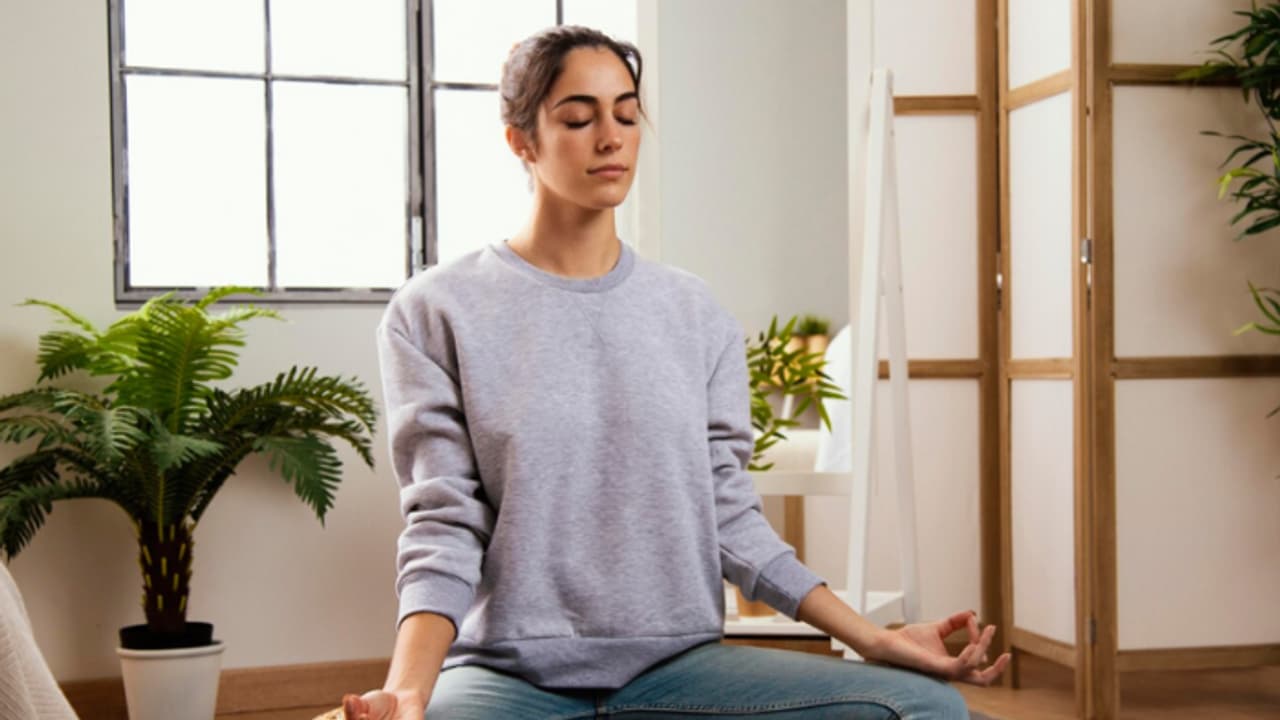Meditation and yoga are both simple and accessible tools available to anyone. Indeed, they can be of great help whether in working towards better sleep, improved concentration, or just achieving a more balanced effect.
Tens of thousands of people today are suffering from poor sleep and lack of focus and this impacts on Health. Stress, screen time, and busy schedules have drained the bodies and minds of individuals. Luckily, the ancient practices of meditation and yoga offer naturalistic, well-researched applications that improve the quality of sleep and clarity of mind.
The Science Behind Sleep and Focus
Sleep has a connection to the focus. The more tired mind is wandering, lost, and overwhelmed. Likewise, focus not being able to be maintained during the day is really leading to racing thoughts at night, making it even harder to doze off or remain asleep. Most often, stress, anxiety and overstimulation have a part on both sides, which is where meditation and yoga really shine.
1. Meditation for Mental Tranquility and Clarity
Meditation brings silence to the mind and relieves the pressure while increasing concentration.
Repeatedly practicing meditation has a significant impact on health. It will train the mind to get rid of distractions and remain in the present moment. Techniques such as mindfulness meditation had their world settled and got converted by deep breathing reduced levels of cortisol (the hormone of stress), lower heart rates, and so on, hence bringing relaxed states in the body. With time, this could establish better daily concentration and easier falling asleep at night.
Research showed that even 10-15 minutes of meditation per day improves attention spans, memories, and emotional regulation-all very useful in enjoying a productive, peaceful life.
2. Yoga for Physical and Mental Equilibrium
Yoga essentially tries to relax the body and release tension to help prepare the mind for deep rest.
Yoga, of course, is the practice of gentle movements married with careful breath and mindfulness. Certain asanas like child’s pose, forward folds, and legs-up-the-wall provide stimulation to the parasympathetic nervous system-the so-called “rest and digest” mode of the body. Anxiety recedes, blood pressure lowers, and all is prepared for restful sleep.
Improvement of yoga posture to alleviate different physical discomforts, eg back pain, may cause disruption of sleep or focus during the day.
3. What Works for Nighttime Routines
According to The Spa at Chappaqua Crossing, yoga and meditation done right before bed contribute to a powerful sleep ritual.
That short evening routine is to spend about 10 minutes of gentle stretching followed by 5 to 10 minutes of guided meditation or deep breaths; now your body is all set to slow down a little and make it easier for you to fall asleep and stay asleep through the night.
Baby steps: Headspace, Calm, or even simple YouTube videos are good resources for a beginner at creating a bedtime ritual.
4. Morning Must-Have Focus
Start your day with yoga or meditation to increase focus and mental energy, thus establishing your productivity performance.
Morning meditation clears mental fog, while a few sun salutations or light stretches increase blood flow and wake up the body. In sync, they enhance productivity, decision-making, and your ability to stay present-especially in pressure environments such as work or school.
